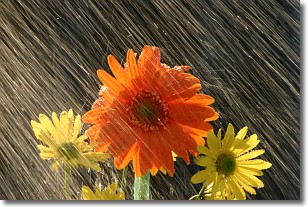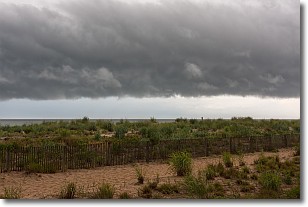Weather Alert in Wisconsin
Flood Warning issued August 13 at 4:07PM CDT until August 15 at 1:00AM CDT by NWS Milwaukee/Sullivan WI
AREAS AFFECTED: Ozaukee, WI
DESCRIPTION: ...The Flood Warning continues for the following rivers in Wisconsin... Cedar Creek At Cedarburg affecting Ozaukee County. Menomonee River At Menomonee Falls affecting Waukesha County. Fox River Lower At Waukesha affecting Waukesha County. Milwaukee River Near Cedarburg affecting Ozaukee County. * WHAT...Minor flooding is occurring and minor flooding is forecast. * WHERE...Milwaukee River near Cedarburg. * WHEN...Until early Friday morning. * IMPACTS...At 11.5 feet, The following roads and intersections may be flooded: Highway Y and Hawthorne Drive in the Town of Saukville, Blueberry Drive and Hawthorne Drive in the Town of Saukville, Highway W between Highway 33 and Highway 57 in the Village and Town of Saukville. Water approaches some homes along Klug Lane just south of Hwy C in Thiensville. Water is near some homes along Island Drive and Shoreland Parkway in the Mequon area. * ADDITIONAL DETAILS... - At 3:00 PM CDT Wednesday the stage was 11.7 feet. - Bankfull stage is 10.0 feet. - Recent Activity...The maximum river stage in the 24 hours ending at 3:00 PM CDT Wednesday was 12.4 feet. - Forecast...The river is expected to rise to a crest of 11.7 feet this evening. It will then fall below flood stage tomorrow evening. - Flood stage is 11.0 feet. - Flood History...This crest compares to a previous crest of 11.8 feet on 03/11/2009. - http://www.weather.gov/safety/flood
INSTRUCTION: Turn around, don't drown when encountering flooded roads. Most flood deaths occur in vehicles. Be especially cautious at night when it is harder to recognize the dangers of flooding. Caution is urged when walking near riverbanks. Motorists should not attempt to drive around barricades or drive cars through flooded areas. Additional information is available at www.weather.gov. The next statement will be issued late tonight at 415 AM CDT.
Want more detail? Get the Complete 7 Day and Night Detailed Forecast!
Current U.S. National Radar--Current
The Current National Weather Radar is shown below with a UTC Time (subtract 5 hours from UTC to get Eastern Time).

National Weather Forecast--Current
The Current National Weather Forecast and National Weather Map are shown below.

National Weather Forecast for Tomorrow
Tomorrow National Weather Forecast and Tomorrow National Weather Map are show below.

North America Water Vapor (Moisture)
This map shows recent moisture content over North America. Bright and colored areas show high moisture (ie, clouds); brown indicates very little moisture present; black indicates no moisture.

Weather Topic: What is Precipitation?
Home - Education - Precipitation - Precipitation
 Next Topic: Rain
Next Topic: Rain
Precipitation can refer to many different forms of water that
may fall from clouds. Precipitation occurs after a cloud has become saturated to
the point where its water particles are more dense than the air below the cloud.
In most cases, precipitation will reach the ground, but it is not uncommon for
precipitation to evaporate before it reaches the earth's surface.
When precipitation evaporates before it contacts the ground it is called Virga.
Graupel, hail, sleet, rain, drizzle, and snow are forms of precipitation, but fog
and mist are not considered precipitation because the water vapor which
constitutes them isn't dense enough to fall to the ground.
Next Topic: Rain
Weather Topic: What are Shelf Clouds?
Home - Education - Cloud Types - Shelf Clouds
 Next Topic: Sleet
Next Topic: Sleet
A shelf cloud is similar to a wall cloud, but forms at the front
of a storm cloud, instead of at the rear, where wall clouds form.
A shelf cloud is caused by a series of events set into motion by the advancing
storm; first, cool air settles along the ground where precipitation has just fallen.
As the cool air is brought in, the warmer air is displaced, and rises above it,
because it is less dense. When the warmer air reaches the bottom of the storm cloud,
it begins to cool again, and the resulting condensation is a visible shelf cloud.
Next Topic: Sleet
Current conditions powered by WeatherAPI.com




